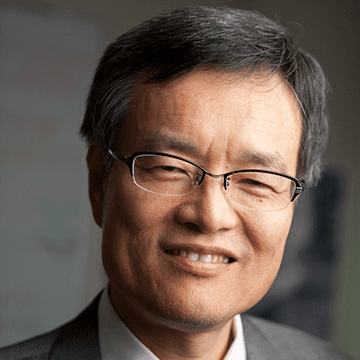
- Graduate Field Affiliations
- Applied Mathematics
- Electrical and Computer Engineering
Biography
Dr. Hsiao-Dong Chiang received his Ph.D. in Electrical Engineering from the University of California, Berkeley. He is currently a professor in the School of Electrical and Computer Engineering at Cornell University. Chiang was awarded a Chang-Jiang Chair professorship from 2006-2009 and was recognized as an IEEE Fellow in 1997 before becoming a full professor in 1998. Chiang is also the founder of Bigwood Systems, Inc. (BSI) and Global Optimal Technology, Inc..
BSI was established to provide the utility industry with high-quality software solutions growing out of cutting-edge research and development work. BSI has served over 50 customers worldwide and over 35 major utility companies. In the United States, On-line EMS products developed by Chiang and his team members at BSI have served utility customers in 45 states that cover over 70% of the US population. In Japan, the BCU method, invented by Chiang, is documented and displayed in the Electric Museum of TEPCO Research Center facility located in Kawasaki, Tokyo, Japan.
Chiang’s current research, development interests, and activities include nonlinear system theory, nonlinear computation methods and theory, nonlinear optimization, and their practical applications to power grids with IBRs, power grids analysis, assessment, optimization, and enhancement. Chiang holds 28 U.S. and overseas patents. He and his research team have published more than 480 papers in refereed journals and conference proceedings, receiving more than 17,500 citations with a H factor of 65. Chiang is an inventor of 28 patented technologies and has successfully managed over 100 projects.
Research Interests
Professor Chiang’s research effort is focused on both theoretical developments and practical applications. Particular areas include nonlinear system theory, nonlinear computations and their practical applications to electric circuits, systems, signals and images. He and his co-workers have developed a comprehensive theory of stability regions for general nonlinear dynamical systems (including continuous, discrete, interconnected, hyperbolic and non-hyperbolic nonlinear systems) and their practical applications. He and his co-workers have developed the BCU method and the Group-based BCU method for fast direct stability assessments for electric power systems. He and his group also work on the development of computational methods for the nonlinear analysis and control of large-scale systems.
- Systems and Networking
- Information Theory and Communications
- Information, Networks, and Decision Systems
Teaching Interests
- Electric power system analysis and optimization.
- Electric power system dynamic simulation and stability analysis.
- Nonlinear system stability analysis and control.
- Nonlinear circuits and systems.
- Nonlinear optimization and applications.
- Distribution networks: analysis, control and optimization.
- Machine learning and data mining.
Select Publications
-
Direct Methods for Stability Analysis of Electric Power Systems: Theoretical Foundation, BCU Methodologies, and Applications, John Wiley and Sons, 2011
-
Stability Regions of Nonlinear Dynamical Systems: Theory, Optimal Estimation, and Applications, Cambridge Press, 2015 (with L. F. C. Alberto)
-
“ELITE: Ensemble of Optimal, Input-Pruned Neural Networks Using TRUST-TECH.”IEEE Transactions on Neural Networks22(1): 96-109. 2011
-
“Application of TRUST-TECH methodology in optimal power flow of power systems.” In Optimization in the Energy Industry, 297-318. 2009
-
“TRUST-TECH-based Expectation Maximization for Learning Finite Mixture Models.” IEEE Transactions on Pattern Analysis and Machine Intelligence30(7): 1146-1157. 2008
Select Awards and Honors
- First Place of Department of Energy (DOE) Grid Optimization (GO) Challenge III Round 1 2023
- First Place of DOE Grid Optimization (GO) Challenge III Round 3 2023
- Third Place of DOE Grid Optimization (GO) Challenge III Round 2 2023
- Best paper award, Institute of Electrical and Electronics Engineers (IEEE) Transactions on Power systems 2022
- Best conference paper award, IEEE PES meeting 2022
- DOE Top 2 Grid Optimization (GO) Challenge II -Plus 2022
- DOE Top 2 Grid Optimization (GO) Challenge II 2021
- DOE Top 10 Grid Optimization (GO) Challenge I 2020
- “Innovation Project of the Year” at the UK Networks Awards 2019
- IEEE Fellow Award 1997
- IEEE Working Group Award 1996
- Outstanding Education Award, Cornell University 1990
- United States Presidential Young Investigator Award 1989
- Engineering Initiation Award, National Science Foundation 1988
Education
- B.S., Electrical Engineering, National Taiwan University 1979
- M.S., Electrical Engineering, National Taiwan University 1981
- Ph.D., Electrical Engineering, University of California Berkeley 1986